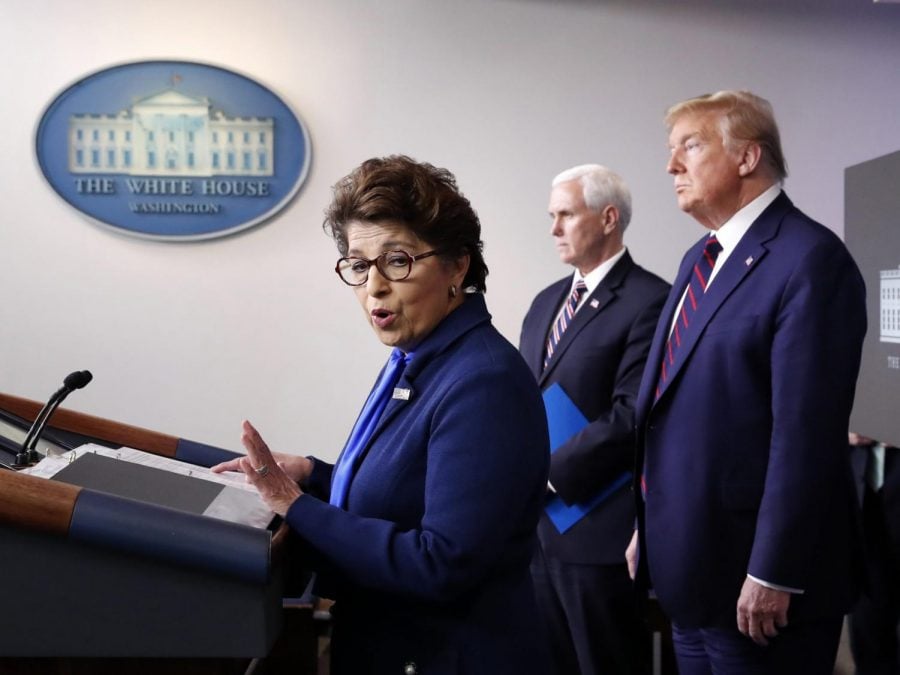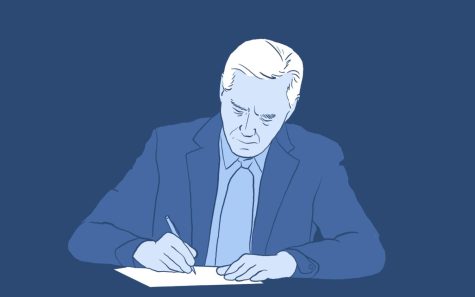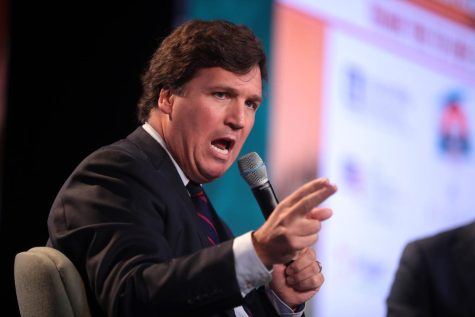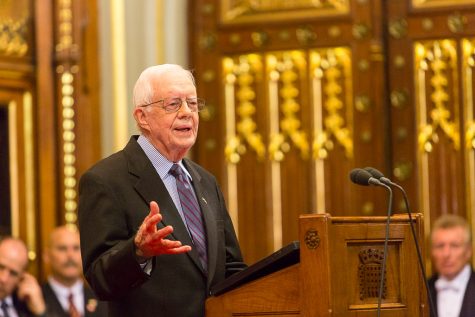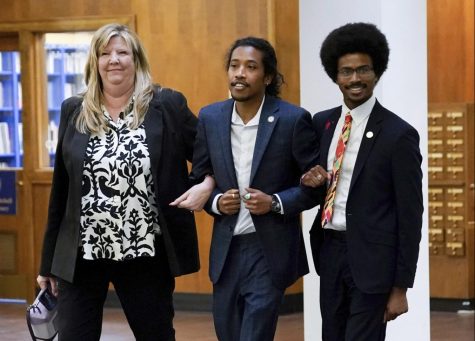Congress passes $2 trillion coronavirus relief act
In this Thursday, April 2, 2020 file photo, Jovita Carranza, administrator of the Small Business Administration, speaks about the coronavirus in the James Brady Press Briefing Room of the White House n Washington, as Vice President Mike Pence, President Donald Trump listen. Millions of small businesses are expected to apply for a desperately needed rescue loan Friday, a stern test for a banking industry that has had less than a week to prepare for the deluge. Small businesses will be seeking loans from the $349 billion Paycheck Protection Program, which was put in place to help them retain workers and pay bills during the coronavirus pandemic.
On March 27, in an effort to stimulate the economy and provide relief for those affected by the coronavirus pandemic, Congress passed the Coronavirus Aid, Relief and Economic Security (CARES) Act, offering trillions in aid.
The $2 trillion stimulus package received a unanimous vote in the Senate last Wednesday before being passed in the House of Representatives that Friday. President Donald Trump ultimately ratified the bill that same day. In addition to alleviating the losses suffered by individuals and businesses, the legislation will also help areas like public health which is at the forefront of the fight against the virus.
The money allocated is to be split in the following areas: Individuals, big corporations, small companies, public health, state and local governments, safety nets and education.
For individuals, the CARES Act allocates an estimated total of $560 billion, with $300 billion going towards cash payments, according to NPR. Those cash payments will be based on either the 2018 or 2019 tax filings.
For the average American, this means a one-time cash payment of $1,200. In addition, parents with qualifying children under the age of 17 will receive an extra $500 per child. However, there are income thresholds.
According to the New York Times, single adults with an adjusted gross income of $75,000 or less will get the full amount. Married couples with no children earning $150,000 or less will get $2,400. If you’re filing as head of household, you get the full amount if you earned $112,500 or less. The plan is for people to receive their payments by April 17.
“How quickly these payments are distributed to individuals is going to be crucial,” said Sarah Foster, a U.S. economy reporter for Bankrate. “When the Obama administration distributed a similar form of stimulus checks to Americans, it took nearly four months before they made it out. The sooner individuals get this money, the sooner it will help cushion their wallets and, ultimately, the sooner it will get cycled back into the economy.”
If someone claims you as a dependent, then you are no longer entitled to the cash payment. This applies to college students as well.
Janet Holtzblatt, senior fellow at the Urban-Brookings Tax Policy Center, told CNBC that people who can be claimed as dependents, even if they are not, will not be eligible for a payment. So a college student between the ages of 19 to 24 will not receive a payment and neither will the taxpayer who claims them as a dependent.
The CARES Act will provide assistance for those who now may find themselves out of work. It will add an additional $600 per week on top of the state base. Whatever a person may already be receiving from the state, they will be getting an extra $600. These benefits also extend to those who were unable to claim unemployment benefits in the past as well as gig workers and independent contractors.
“These are, by historic standards, probably the most generous unemployment benefits we’ve ever given,” said Michael Madowitz, an economist at the Center for American Progress.
Small and big corporations are estimated to receive $377 billion and $500 billion, respectively. For small businesses, those funds will be allocated as emergency grants to cover immediate costs, for the Small Business Administration (SBA) to provide loans up to $10 million per business and for relief for six months of payments for businesses who already have loans with the SBA.
For corporations, the bill allocates an estimated $500 billion in loans and other money. The caveat is that they will need to pay the money back and will be subject to public disclosures. It also calls for a temporary ban on stock buybacks for the length of the loan plus one year.
Trump, Vice President Mike Pence, his cabinet and members of Congress are banned from benefiting from any of the loans given to corporations.
Similar to the TARP legislation back in 2008, some of the criticism of the bill is that it seems to disproportionately benefit businesses more than the average taxpayer.
“Money has to be distributed to both corporations and to households,” said Michael Miller, associate professor of economics at DePaul University. “If no money is allocated to firms, and those firms have few to no dollars of revenue, they will fail and there will be no firms to hire people once this is over.”
The coronavirus has put a significant strain on public health and the healthcare system as a whole. The CARES Act will pump an estimated $153.5 billion toward public health, with $100 billion of that going directly to hospitals. It also reauthorizes a telehealth program which will allow patients to schedule virtual appointments with their doctor.
The bill also calls for $11 billion to increase the availability of ventilators and gas masks and it requires private insurance companies to cover coronavirus treatments and to make testing free. But the effect on the number of testing may not change much.
“The gains will be very marginal – everyone who can is trying as hard as they can to develop tests and treatments and the new legislation doesn’t change that very much,” said Anthony Lo Sasso, a DePaul professor specializing in health care economics.
The legislation allocated $8.8 billion for schools to be able to feed students, $15.5 billion for food stamps and $450 million for food banks. State and local governments received an estimated $339.8 billion divided among the coronavirus response efforts as well as state and local governments being hit hard given the high number of cases.
Education was given funds to help students who are being forced to drop out because of the pandemic, relief for work-study students so they’ll be able to receive work-study wages and provides temporary student loan relief.
Students will be given a break from paying their student loans until Sept. 30 and will not be penalized for late payments. However, this does not apply to private student loan borrowers.
Canceling all or a portion of student-loan debt would have softened the economic uncertainties millions of students are facing and could have potentially provided a boost for the economy down the road.
“The only way young people can stimulate the economy is through student debt relief,” said DePaul student Carlos Rodriguez. “Even if this came to an end this month, we’ll be left with another month’s worth of bills and no job. Student loan debt would continue to increase but this recession or depression, whatever you may call it, will leave millions unable to pay it off and spend it on consumer goods.”
The CARES Act $2 trillion amount makes it the largest stimulus package in U.S. history. Even so, it still might not be enough.
“It’s the third bill to come out of Washington that’s designed to help contain the economic fallout from the coronavirus, and to further illustrate how crucial a Congressional response is, whispers are already growing on Capitol Hill for a fourth bill,” Foster said.


